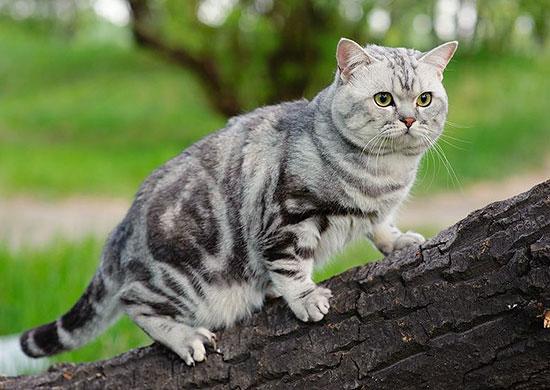This content is archived from the Feline Nutrition Foundation
Let Me Tell You About Raw Cat Food. Hey Come Back!
- Updated: Saturday, May 18, 2019 05:17 PM
- Published: Saturday, October 14, 2017 02:16 PM
- Written by Margaret Gates
If you're anything like me, as soon as you realized what a difference raw food for cats makes, you wanted to tell everyone all about it. You wanted to convince everyone to do what you did. If you've tried, you probably had mixed success, right? Why is that? Just think about what we're saying. Basically, you're telling someone what they're doing is wrong, and you've got it right. You can see the problem. Nobody likes being told they are wrong. Ever.
There are only two ways someone will be receptive to this kind of message. One: they already know or suspect they've got it wrong and are looking for validation. Two: you already have a personal relationship and a level of trust exists between you. Even for the latter, you can't always get through to people. At first, that will seem perplexing. You will tell yourself, "It's so obvious once it's pointed out. Cats need meat! Why doesn't this person get it?" I know why. And you aren't going to like it.
You can't make people care. For too many pet owners, cats are simply animals. They are "just a cat." They aren't "people." I'm not saying they aren't fond of their pets, but they aren't like you and me. Maybe they got the cat for the kids or they actually are a "dog person." These folks will think of whatever junk they're feeding the cat and say, "It's good enough." How do you get through to these people? You don't. You walk away. All the logic, examples and science is wasted on them. They don't care. It's as simple as that. And you can't change that, period.
 So, how do you go about convincing others that raw food for cats is the greatest thing since sliced bread? Tread carefully. It can be done, but only on their terms. If you just plunge in, you'll be that proselytizer who knocks on the door saying, "I have the truth. I am right and you are wrong!" You do not want to be that person. It's a good way to get the door slammed permanently on any acceptance of the idea. Convincing a stranger, or even someone you know, will only happen if they are interested and want to know more. You can say one thing. If they care (see above), they may follow up with questions, which means you have an in. If they don't pursue it, stop right there. Don't be a jerk. That may sound harsh, but that's what people will think.
So, how do you go about convincing others that raw food for cats is the greatest thing since sliced bread? Tread carefully. It can be done, but only on their terms. If you just plunge in, you'll be that proselytizer who knocks on the door saying, "I have the truth. I am right and you are wrong!" You do not want to be that person. It's a good way to get the door slammed permanently on any acceptance of the idea. Convincing a stranger, or even someone you know, will only happen if they are interested and want to know more. You can say one thing. If they care (see above), they may follow up with questions, which means you have an in. If they don't pursue it, stop right there. Don't be a jerk. That may sound harsh, but that's what people will think.
A friend of mine runs a rescue and has a story. She advocates that the kittens she adopts out be fed – actually, continue to be fed – a raw cat food diet once the adopters take them home. While espousing the benefits to some people who were picking up their kittens, she noticed they were smiling and nodding, but were physically backing away. She realized she had gone a step too far. They were literally, if not consciously, trying to run away from her.
For people who haven't come to you asking questions, you have to plant the seed of the idea, then stop. You'll simply have to trust that they'll look for more information if they decide to go further. That is one of the reasons Feline Nutrition exists. We wanted to create a place where people who were new to the idea and curious could come and learn more. Somewhere safe. No ads, no selling a product. Information grounded in science and stories of people just like them. We also wanted it to be a place where people felt comfortable sending others. You can say your one thing to a person, and if they seem even slightly interested – and they may simply be being polite – then add "go here if you want to find out more about it" and stop. I actually do this all the time. No one likes feeling pressured to accept a new idea. Let them explore on their own.
What about the first way, people who come to the idea on their own? Most of these folks are looking for information about the right kind of food for an obligate carnivore because their cat is already sick or has died. This is sad, but very common. I was once in that group. Others might look into a species-appropriate diet because they've never had a cat before. They have few preconceived notions. Or, they've heard something about raw food for cats and are curious. All of these people will be receptive to finding out more from you. Because they do care.
Despite the challenges of getting this message out, raw food for cats is more popular than ever. It's mostly happened organically – person to person. This approach can be very effective and grow exponentially. Changing minds is hard, but it's worth it. Be the advocate for people who trust you.
Additional Reading
Beginner's Luck: Where Do I Start?
Just What is a Raw Cat Food Diet, Anyway?
Don't forget that the best advocate might be sitting in your lap right now. Nothing convinces a skeptic better than a healthy, active, super-soft and shiny, odor-free pooping cat. Many times I've heard from people whose cats changed their veterinarian's mind. The vet will ooh and aah over how healthy the cat is, how great her teeth look, how she doesn't look her age at all and what, her diabetes is in remission, my, my. Then they discover it's all because the cat is eating the diet of a strict carnivore. It gives them pause (pun intended). The evidence is right there. Fluffy did it all by herself.
Margaret Gates is the founder of Feline Nutrition and the Feline Nutrition Foundation.





